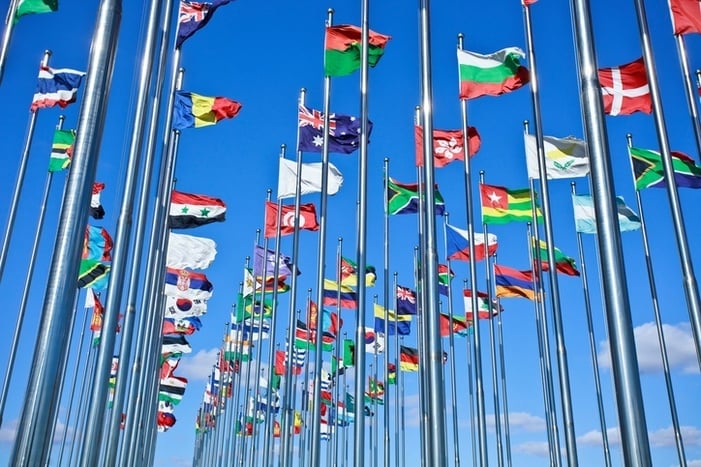 Intergovernmental organisations are central to the study and practice of international relations
Intergovernmental organisations are central to the study and practice of international relations
Students of international relations study a wide range of international organisations, bodies, and systems in order to explain how states affect each other and how power is distributed and exercised across the globe. One crucial component of this is the role of intergovernmental organisations.
Intergovernmental organisations are a type of international organisation that is mostly made up of member states, and is created with a treaty. For example, the United Nations (UN), World Trade Organization (WTO), and International Monetary Fund (IMF) are all intergovernmental organisations.
International relations students need to understand the role these organisations play on the global stage, and how they are relevant to their desired career.
Understand Different Theories of Intergovernmental Organisations on a International Relations PGCert
If you plan to study international relations at postgraduate level, then it is very likely that you will become familiar with the many competing perspectives on the role of intergovernmental organisations in the field.
Some scholars and researchers argue that intergovernmental organisations are much less important to consider than the interests of individual states. From this perspective, the policies and actions of intergovernmental organisations simply reflect the needs of their most powerful member states.

You can learn about the contested role of intergovernmental organisations on your PGCert programme
However, others insist that intergovernmental organisations present important opportunities for international cooperation. In an era of globalisation and interdependence, many of these researchers argue that intergovernmental organisations are more important now than ever. As you complete your international relations postgraduate certificate, learning about intergovernmental organisations will help you develop a stronger understanding of different perspectives of international relations, and will help you form your own ideas about how relations between states are influenced.
Intergovernmental Organisations Often Employ International Relations Graduates
Understanding intergovernmental organisations is not just an academic exercise. If you plan to pursue a career in international relations, you may come to find many of these organisations on your list of ideal employers. The types of careers available with intergovernmental organisations of course depend on the type of work they do, but most jobs in this area require a strong understanding of international relations, and have an international component.

Internships are a common path for individuals pursuing careers in intergovernmental organisations
Students interested in working for intergovernmental organisations, such as the UN, the European Union (EU), or the World Health Organisation (WHO), should consider applying to any internship or training schemes available upon graduation. Many intergovernmental organisations use internship programmes as a means of training potential employees and assessing potential candidates. If you are interested in these competitive career tracks, internships can be very beneficial.
Intergovernmental Organisations Matter for Many International Relations Careers
Even if you do not want to work for an intergovernmental organisation after your international relations PGCert, learning more about how they influence international relations may still be incredibly important to your career in other internationally-oriented fields. Intergovernmental organisations play a key role in developing international policy, law, and programmes.
If, for example, you plan to work in an aid organisation that provides emergency food and resources to impoverished areas of the world, being familiar with the workings of the World Food Programme (WFP) will help you contextualise your work internationally and understand how different states contribute to issues of poverty and hunger.
Alternatively, if you want to work in international business, understanding key trade and financial organisations like NATO will give you valuable insight into the complex ways in which economic and national interests come together. If you plan to embark on a successful international career trajectory, a strong understanding of the intergovernmental organisations most relevant to your work will make you a stronger job candidate and a more effective professional.
Do you want to know more about how you can launch your international career?
Contact Queen Mary Online to learn more about the benefits of our online Postgraduate Certificate programmes.
.png?width=280&height=74&name=logo%20(1).png)

 Follow us on Twitter
Follow us on Twitter Like us on Facebook
Like us on Facebook